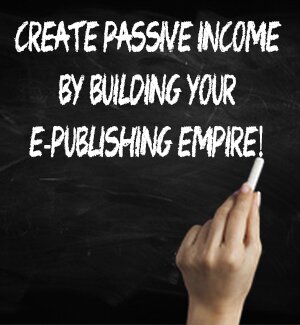Are the holidays memories worth the money? Sharman Williams, Regional Head at The Wealth Corporation, asks whether investing in holiday homes pays off in the end.
As we look forward to the end of the year and make plans for travel during the holidays, the cost of taking a break can seem quite daunting. It is fairly common for people to consider buying a holiday home rather than paying rental during peak seasons, especially while they are relaxed and enjoying the break. But the question is: are holiday homes, in fact, a good investment?
An emotional investment
Numerous studies on the link between wealth and happiness have been conducted. The latest research suggests that the happiness derived from money is found in how it is spent rather than how much has been earned.
For example, associate professor from the University of British Columbia, Elizabeth Dunn, explains that we find greater happiness in experiences than in material things. For many people, travel and holidays form a significant part of the experiences they most enjoy.
Holiday homes thus appear to tick both boxes: a tangible investment and a place where one can have many memorable experiences with loved ones.
A tangible investment
The question of whether or not property is a sound investment can only really be answered on a case-by-case basis, in respect of the following questions:
· Is it in a good location where property is likely to appreciate?
· Did you pay a fair price for it, or a price less than its true value?
· Can you comfortably afford the costs of paying off and maintaining the property?
· Is it accessible, in that you’ll be able to make regular use of it?
FNB recently released their Holiday Towns House Price Index which comprises data from deeds transactions in regions where property is thought to be dominated by recreational homes.
The results suggest a slowdown in the rise in property prices, with year-on-year price growth of 7.2% in the third quarter of this year, down from 9.5% in the previous quarter. While this year-on-year growth remains stronger than that of primary residences in metropolitan areas, the price inflation rate has slowed of late, in line with the tapering growth of metropolitan residences.
In reality, holiday home prices are also playing catch up after years of lagging the metros. The 2008/2009 recession saw financially-constrained and over-indebted households invest more in metropolitan properties than discretionary holiday homes. Accordingly, prior to 2014 property in holiday towns fell behind that of metros for most of the post-recession period. House prices even experienced some deflation over a significant portion of this time.
From the second half of 2014 to date, demand for holiday homes has steadily increased, surpassing the growth of metro areas. However, this growth is expected to taper off again, in light of the toughening economic environment which has led to second homes becoming increasingly unaffordable for many.
A financial perspective
From a financial perspective, the question people seldom seem to ask themselves in relation to purchasing property is: could that money have been put to better use in terms of paying off debt or investing in one’s business or the market?
In very simple terms, investment assets generate income and lifestyle assets generate expenses. Remember that there is both a holding cost (insurance, maintenance, security, rates, etc.) and an opportunity cost of tying up your capital. Residential and leisure properties have not performed well historically in comparison with other asset classes and markets tend to be cyclical, as illustrated by FNB’s Holiday Towns House Price Index. The financial consequences of having to wait for the next upturn can also be quite devastating, especially if you need to utilise debt funding to get you there.
Consider the following example. You have 20% lifestyle assets and 80% investment assets. Effectively you have a net 60% generating an income. If however, the balance tilts and you have 40% in lifestyle assets and 60% in investment assets, you only have 20% of your assets working for you.
Many financially secure pensioners have had their dreams deferred after investing excessively in lifestyle assets.
Beware, too, of time share investments and property syndicates involving family and friends. Very often the monthly levies escalate to the point where they significantly exceed the cost of simply renting your own accommodation. In addition, a time share investment can be more of a liability than an asset in a deceased estate, as there are often no buyers to be found when you need them.
Turning to our opening question: is owning a holiday home worth it? For most people, the answer is no.
The Wealth Corporation Proprietary Limited (registration number 1996/013143/07) is an authorised financial services provider, founded in 2001, with a national footprint and a partnership with Citadel in 2012. The company offers advisory solutions with a view of the retirement planning and management process, looking at aspects of financial and personal well-being. The article above is for general information purposes only and it is not an invitation to sell or to invest.
« 10 Steps to Financial Wellness in 2016 Issue 18 (Best of 2011-2015) »







